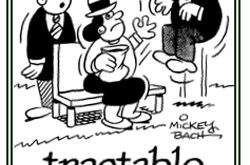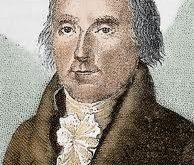The challenges of tractability in economic modelling There is a general sense in which the whole idea of model and model-based science derive from the need for tractability. The real world out there is far too intractable to be examined directly … therefore one directly examines the more tractable model worlds … Many of these tractability-enhancing assumptions are made because the math that is being used requires it. They enhance the mathematical...
Read More »Tony Lawson vs Uskali Mäki
Tony Lawson vs Uskali Mäki We are all realists and we all — Mäki, Cartwright, and I — self-consciously present ourselves as such. The most obvious research-guiding commonality, perhaps, is that we do all look at the ontological presuppositions of economics or economists. Where we part company, I believe, is that I want to go much further. I guess I would see their work as primarily analytical and my own as more critically constructive or dialectical. My...
Read More »RCTs risk distorting our knowledge base
RCTs risk distorting our knowledge base The claimed hierarchy of methods, with randomized assignment being deemed inherently superior to observational studies, does not survive close scrutiny. Despite frequent claims to the contrary, an RCT does not equate counterfactual outcomes between treated and control units. The fact that systematic bias in estimating the mean impact vanishes in expectation (under ideal conditions) does not imply that the (unknown)...
Read More »Laplace and the principle of insufficient reason (wonkish)
Laplace and the principle of insufficient reason (wonkish) After their first night in paradise, and having seen the sun rise in the morning, Adam and Eve were wondering if they were to experience another sunrise or not. Given the rather restricted sample of sunrises experienced, what could they expect? According to Laplace’s rule of succession, the probability of an event E happening after it has occurred n times is p(E|n) = (n+1)/(n+2). The probabilities...
Read More »Die Risikogesellschaft
[embedded content] Advertisements
Read More »Donald Rubin on randomization and observational studies
Donald Rubin on randomization and observational studies [embedded content] Advertisements
Read More »The essence of scientific reasoning
The essence of scientific reasoning In science we standardly use a logically non-valid inference — the fallacy of affirming the consequent — of the following form: (1) p => q (2) q ————- p or, in instantiated form (1) ∀x (Gx => Px) (2) Pa ———— Ga Although logically invalid, it is nonetheless a kind of inference — abduction — that may be factually strongly warranted and truth-producing. Following the general pattern ‘Evidence => Explanation...
Read More »Allt — och lite till — du vill veta om kausalitet
Allt — och lite till — du vill veta om kausalitet Rolf Sandahls och Gustav Jakob Peterssons Kausalitet: i filosofi, politik och utvärdering är en synnerligen välskriven och läsvärd genomgång av de mest inflytelserika teorierna om kausalitet som används inom vetenskapen idag. Tag och läs! I den positivistiska (hypotetisk-deduktiva, deduktiv-nomologiska) förklaringsmodellen avser man med förklaring en underordning eller härledning av specifika fenomen ur...
Read More »Hard and soft science — a flawed dichotomy
Hard and soft science — a flawed dichotomy The distinctions between hard and soft sciences are part of our culture … But the important distinction is really not between the hard and the soft sciences. Rather, it is between the hard and the easy sciences. Easy-to-do science is what those in physics, chemistry, geology, and some other fields do. Hard-to-do science is what the social scientists do and, in particular, it is what we educational researchers do....
Read More »Uncertainty heuristics
[embedded content] Advertisements
Read More » Heterodox
Heterodox







